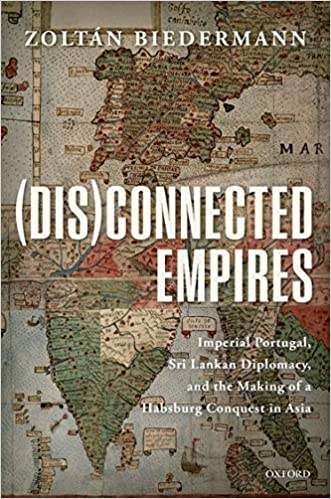Zoltan Biedermann, (Dis)connected Empires
Zoltan Biedermann, (Dis)connected Empires Imperial Portugal, Sri Lankan Diplomacy, and the Making of a Habsburg Conquest in Asia (OUP, 2018)

17 April 2021
Dis)connected Empires takes the reader on a global journey to explore the triangle formed during the sixteenth century between the Portuguese empire, the empire of Kōtte in Sri Lanka, and the Catholic Monarchy of the Spanish Habsburgs. It explores nine decades of connections, cross-cultural diplomacy, and dialogue to answer one troubling question: why, in the end, did one side decide to conquer the other?
To find the answers, this book explores the imperial ideas that shaped the politics of Renaissance Iberia and sixteenth-century Sri Lanka. It argues that, whilst some of these ideas and the political idioms built around them were perceived as commensurate by the various parties involved, differences also emerged early on. This prepared the ground for a new kind of conquest politics, which changed the inter-imperial game at the end of the sixteenth century.
The transition from suzerainty-driven to sovereignty-fixated empire building changed the face of Lankan and Iberian politics forever, and is of relevance to global historians at large. Through its scrutiny of diplomacy, political letter-writing, translation practices, warfare, and art, (Dis)connected Empires paints a troubling panorama of connections breeding divergence and leading to communicational collapse. It explores a key chapter in the pre-history of British imperialism in Asia, highlighting how diplomacy and mutual understandings can, under certain conditions, produce conquest. It also connects the histories of Asia, Africa, and the Americas. This is a timely intervention in the current debate on the future of Global History.
Zoltán Biedermann profile.
 Close
Close

